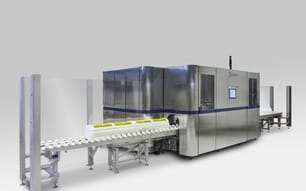Antibiotic shots used at will to make chickens fatter or shrimps bigger will be regulated soon, reports Times of India.
For the first time, National Policy for Containment of Antimicrobial Resistance has put a cap on how much antibiotics can be pumped into seafood or poultry products, including shrimps, prawns or fish and fishery products.
The policy has named common antibiotics like tetracycline, oxytetracycline, trimethoprim and oxolinic acid, and clearly mentioned it 'shall not exceed the prescribed tolerance limit'. The use of over 20 antibiotics or pharmacologically active substances has been prohibited in seafood and poultry products.
Professor Randeep Guleria from AIIMS, a part of the task force, said: "Antibiotics are used by farmers to prevent infection in fish or poultry. However, until now, there was no limitation. We didn't want such fish or meat to enter the food chain and lead to the emergence of antibiotic resistance in humans who eat it. That's why we have fixed limits."
Dr Ranjit Roychoudhury, a task force member and one of India's best known clinical pharmacologists, added: "Poultry are fattened and fish are made bigger by pumping antibiotics and hormones for better price. Eating such products on a regular basis can cause antibiotic resistance in humans."
India is also putting in place a 'bad bug house' – a national repository of bacterial strains that will house drug-resistant strains, including molecular components like DNA/plasmids, according to Times of India.
Dr Roychoudhury added: "We don't have a national repository of standard bacterial strains required for quality control or comparison when new bugs appear. Institute of Microbial technology (IMTECH), Chandigarh, has the requisite infrastructure and expertise."
Dr Guleria said: "Once we have a national repository, we can carry out genetic studies on strains, know where they came from, what their weaknesses are and how they can be eliminated."
According to the policy, about 80 per cent of antibiotics are used in the community and the rest are used in hospitals. It is estimated that 20 to 50 per cent of all antibiotics use in India is inappropriate, resulting in an increased risk of adverse side-effects, higher costs of therapy and higher rate of antimicrobial resistance of community pathogen. The policy has also called for the setting up of a national technical advisory group on development of newer antimicrobials.
No new antibiotics have been discovered for years. On the other hand, bacteria strains are being found that are resistant to the latest generation of antibiotics.
"That's why this group will work with prominent research institutes to develop newer antimicrobials," Dr Roychoudhury said.
Another Drug and Therapeutics Committee (DTC) will fix criteria for the approval of new drugs. It may decide to keep a maximum of three brands of an approved generic. DTC can also ban the use of few harmful drugs like phenylpropanolamine (PPA) and nimesulide in the hospital. The committee can also remove few irrational fixed dose combinations from the hospital drug list. These combinations include the fixed dose combination of ampicillin with cloxacillin, amoxicillin with cloxacillin. Hospital DTC will also develop the over-the-counter drug list for the hospital.
The Times of India article concludes that over-use, under-use and misuse of antimicrobials remain a worldwide hazard – over 15 billion injections per year, half unsterile, many unnecessary, 25 to 75 per cent of antibiotic prescriptions inappropriate, 50 per cent of people worldwide fail to take medicines correctly. All over the world, 30 to 60 per cent of PHC patients receive antibiotics, which may be twice as high as it may be clinically required.
Govt To Cap Antibiotic Use For Poultry, Fish & Shrimp
INDIA - The Government is to introduce a cap on the use of antibiotics and ban some products altogether in poultry, shrimp and fish during production in order to tackle the problem of antibiotic resistance in human pathogens.





